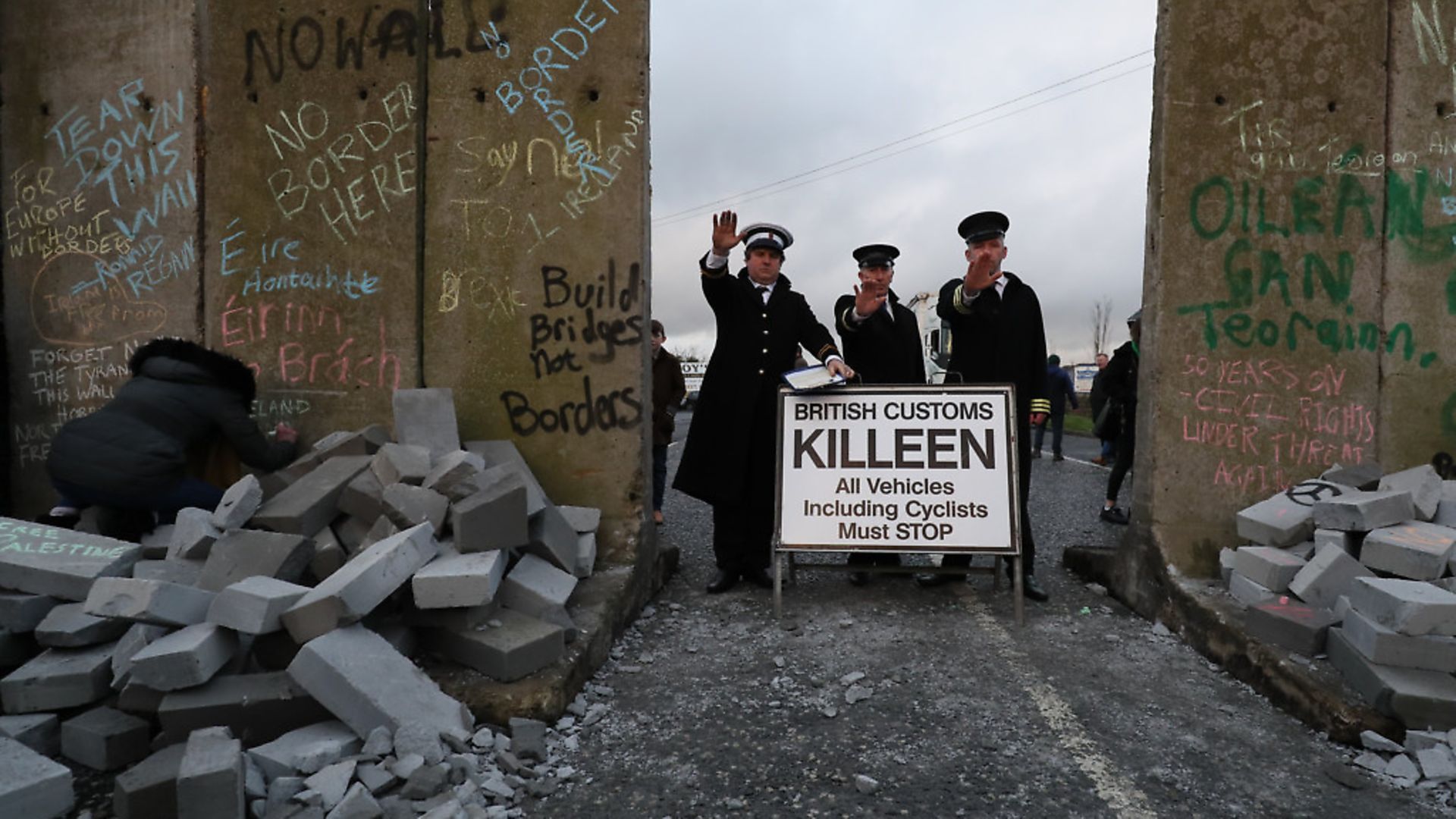
The true significance of the other backstop – in Ireland – is often lost in the rhetoric. BARNABY TOWNS reports on what it represents
One of the saddest features of the Brexit debacle is Brexiteers’ continual development of ever more extreme EU exits, while the government scrambles to appease their increasing intransigence.
But of all the alarming risks Tory and DUP nationalists are willing to take for Brexit – crashing the economy without a deal; breaking up the UK; and more hate crime – their cavalier attitude to Northern Ireland’s fragile peace reveals truly chilling carelessness. This hard-earned historic achievement was won against a bloody backdrop of three-and-a-half centuries of sectarian strife, state-sanctioned repression and discrimination, and terrorism. If Brexiteers get their way, today’s 20-year old peace, which followed three violent decades of the Troubles in which more than 3,500 died – half of them civilians – could easily unravel.
The peace process, painstakingly put together by the UK and Republic of Ireland, a Tory and Labour government, and Northern Ireland’s political parties, civic institutions and former combatants, is imperilled because Brexit risks the near-invisible border that has helped keep the peace. This is because withdrawal from the EU’s internal market would make the UK a ‘third country’ vis-à-vis the EU, subject to the EU’s common external tariff and customs checks necessitating the queues, checkpoints and searches common to EU frontiers so as to protect the standards underpinning the internal market.
Today’s infrastructure-free border rests upon a vast amount of statecraft, diplomatic and political capital poured into the peace process. This is quite a contrast with the Brexiteers’ back-of-envelope notions, including: technology that doesn’t exist; false claims that the borders between the EU’s Norwegian and Swiss borders are open like Ireland’s; and opaque plans to replicate checks and delays away from the border.
A quarter-century spans the failed 1973 Sunningdale Agreement, the more limited 1985 Anglo-Irish Agreement and the 1998 Good Friday Agreement. Among the 1998 accord’s many achievements are the groundbreaking repeal of the 1920 British Government of Ireland Act, and the complementary revocation of Articles 2 and 3 of the Republic of Ireland’s constitution, ending each nation’s respective claims to the territory of the other.
No less impressively, the GFA delivered ceasefire declarations from most paramilitary organisations; the complete decommissioning of IRA weapons; reform of the region’s police and criminal justice system; and withdrawal of the British army from the streets and sensitive border areas.
Additionally, the GFA secured the establishment of the Northern Ireland Executive; devolved government requiring power sharing between unionist and nationalist parties elected using proportional representation; incorporated the European Convention of Human Rights into Northern Irish law; and created the Northern Ireland and Irish Human Rights Commissions. Helping safeguard these human rights protections, the GFA is an international treaty between the UK and the Republic lodged at the United Nations, giving the treaty legal status in international law and providing another independent arbiter alongside the European Court of Human Rights.
Perhaps most significant of all is the sustained reduction in fatalities since peace broke out.
Sadly, since the GFA was signed, nearly 160 lives have been lost to sectarian violence, research out of Queen’s University, Belfast has found. To place that in perspective, that is less than 5% of the annual average death toll during three decades of the Troubles.
The Withdrawal Agreement’s Irish backstop, to which Theresa May committed on behalf of the UK last year, before asking parliament to vote against it, is an insurance policy protecting current border arrangements. It would come into force should the UK and the EU fail to subsequently agree terms for a future trade relationship that render the backstop unnecessary.
At that point, a UK-wide customs union with the EU and adherence to single market rules in Northern Ireland automatically kick in. Both the UK and the EU would then have to agree to end this back up arrangement, prompting hardline Brexiteer ire.
A harder border not only creates targets for terrorism but threatens the £6 billion of annual cross-border trade, which has grown at 4% annually under the GFA, according to economic development body InterTradeIreland. This matters more for Northern Ireland, where average income per head languishes at 23,700 euros (59% of the RoI total), lower than the Republic’s 39,873 euros, and the UK average at 33,842 euros (85% of the RoI total), the Irish Central Statistics Office and UK Office of National Statistics reveal.
Peace and prosperity changed attitudes, nurturing cross-community bonds, especially among young people with no experience of the Troubles. The UK Remaining in the EU – or the single market and customs union as a non-EU member – would protect the shared future Brexiteer nationalists tragically threaten.









